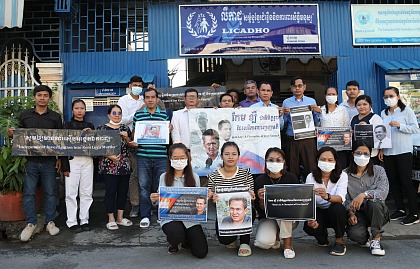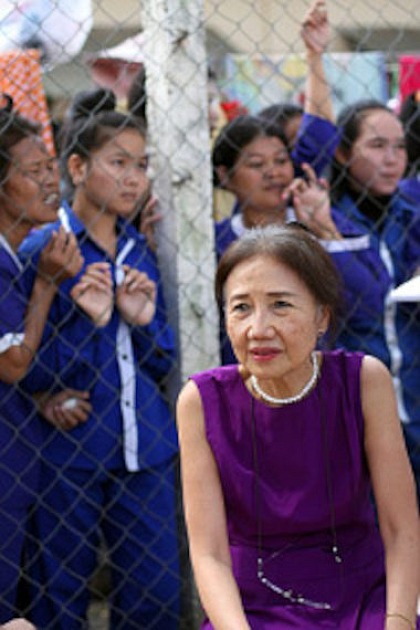The Cambodian League for the Promotion and Defense of Human Rights (LICADHO) works closely with grassroots communities, human rights defenders and activists to monitor, document and investigate human rights abuses in Cambodia. A Cambodian non-governmental organisation, LICADHO has been at the forefront of efforts to protect civil, political, economic and social rights in Cambodia, and to promote respect for these rights by the Cambodian government and institutions.
Since its establishment in 1992, LICADHO's work has changed to meet the demands of the dynamic human rights situation and the evolving needs of communities and activists in Cambodia. LICADHO's primary activities of monitoring, intervention, documentation and advocacy aim to promote accountability of government officials and non-state actors, as well as amplify community voices both domestically and internationally.
LICADHO's Origin
While Cambodia's civil war was raging in the 1980s, Dr. Kek Galabru (Pung Chhiv Kek) played a key role in arranging negotiations between factions. The negotiations eventually led to the signing of the Paris Peace Accords in 1991, which mandated a United Nations mission to Cambodia to supervise elections.
In the wake of the peace agreement, Dr. Galabru and other Cambodians living overseas returned to Cambodia to help their compatriots suffering from years of conflict. She co-founded and presides The Cambodian League for the Promotion and Defense of Human Rights, known by its French acronym LICADHO, in 1992.
One of LICADHO’s first projects was conducting voter education campaigns for the UN-organised elections held in 1993 and monitoring the pre-election environment. Subsequently, it began to address human rights abuses occurring in the country.
LICADHO has also worked in partnership with LICADHO Canada, a sister non-governmental organisation registered in British Columbia, Canada in 2006. The focus of LICADHO Canada was to support specific communities under threat of forced eviction - one of Cambodia's most pressing human rights concerns.
LICADHO Today
In addition to its human rights monitoring, LICADHO has developed an in-house team of prison monitors; doctors and medical professionals; lawyers and paralegals; and social workers to meet the ever-changing demands of communities and provide more holistic services to clients.
LICADHO has also strengthened its networks to include Indigenous communities, women activists, land activists, unions and partner organisations to support their advocacy efforts and work. The organisation has also developed strong relationships with academics, researchers and journalists as part its policy to create strategic alliances to bolster its advocacy activities.






